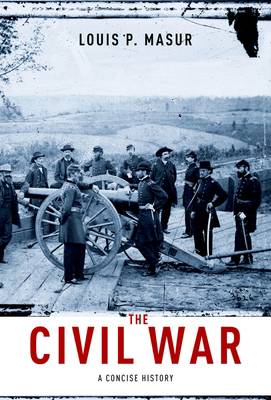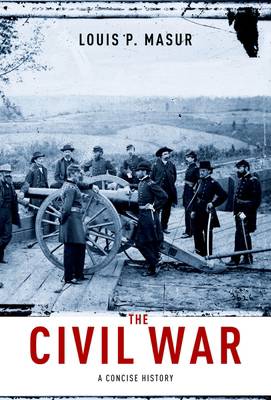
- Retrait gratuit dans votre magasin Club
- 7.000.000 titres dans notre catalogue
- Payer en toute sécurité
- Toujours un magasin près de chez vous
- Retrait gratuit dans votre magasin Club
- 7.000.000 titres dans notre catalogue
- Payer en toute sécurité
- Toujours un magasin près de chez vous
Description
One hundred and fifty years after the first shots were fired on Fort Sumter, the Civil War still captures the American imagination, and its reverberations can still be felt throughout America's social and political landscape.
Louis P. Masur's The Civil War: A Concise History offers a masterful and eminently readable overview of the war's multiple causes and catastrophic effects. Masur begins by examining the complex origins of the war, focusing on the pulsating tensions over states rights and slavery. The book then proceeds to cover, year by year, the major political, social, and military events, highlighting two important themes: how the war shifted from a limited conflict to restore the Union to an all-out war that would fundamentally transform Southern society, and the process by which the war ultimately became a battle to abolish slavery. Masur explains how the war turned what had been a loose collection of fiercely independent states into a nation, remaking its political, cultural, and social institutions. But he also focuses on the soldiers themselves, both Union and Confederate, whose stories constitute nothing less than America's Iliad. In the final chapter Masur considers the aftermath of the South's surrender at Appomattox and the clash over the policies of reconstruction that continued to divide President and Congress, conservatives and radicals, Southerners and Northerners for years to come.
In 1873, Mark Twain and Charles Dudley wrote that the war had "wrought so profoundly upon the entire national character that the influence cannot be measured short of two or three generations." From the vantage of the war's sesquicentennial, this concise history of the entire Civil War era offers an invaluable introduction to the dramatic events whose effects are still felt today.
Louis P. Masur's The Civil War: A Concise History offers a masterful and eminently readable overview of the war's multiple causes and catastrophic effects. Masur begins by examining the complex origins of the war, focusing on the pulsating tensions over states rights and slavery. The book then proceeds to cover, year by year, the major political, social, and military events, highlighting two important themes: how the war shifted from a limited conflict to restore the Union to an all-out war that would fundamentally transform Southern society, and the process by which the war ultimately became a battle to abolish slavery. Masur explains how the war turned what had been a loose collection of fiercely independent states into a nation, remaking its political, cultural, and social institutions. But he also focuses on the soldiers themselves, both Union and Confederate, whose stories constitute nothing less than America's Iliad. In the final chapter Masur considers the aftermath of the South's surrender at Appomattox and the clash over the policies of reconstruction that continued to divide President and Congress, conservatives and radicals, Southerners and Northerners for years to come.
In 1873, Mark Twain and Charles Dudley wrote that the war had "wrought so profoundly upon the entire national character that the influence cannot be measured short of two or three generations." From the vantage of the war's sesquicentennial, this concise history of the entire Civil War era offers an invaluable introduction to the dramatic events whose effects are still felt today.
Spécifications
Parties prenantes
- Auteur(s) :
- Editeur:
Contenu
- Nombre de pages :
- 136
- Langue:
- Anglais
Caractéristiques
- EAN:
- 9780199740482
- Date de parution :
- 10-02-11
- Format:
- Livre relié
- Format numérique:
- Genaaid
- Dimensions :
- 142 mm x 213 mm
- Poids :
- 294 g







